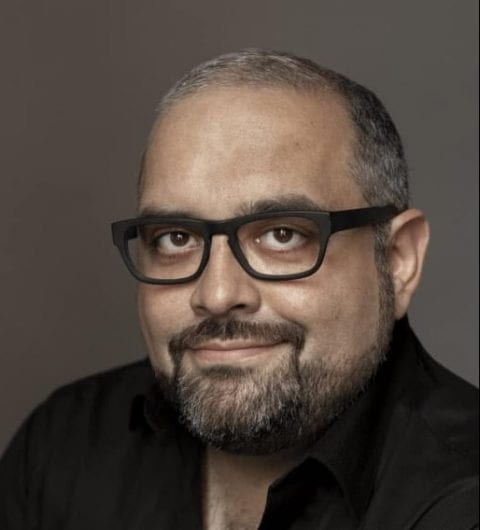
Shamus Khan, co-author of Sexual Citizens, is chair and professor in the Department of Sociology at Columbia University. Credit: Courtesy of Ohio State
Recent data from 2019 showed that instances of reported rape increased by nearly 30 percent from 2017 to ’18 at Ohio State, and two Columbia University professors say they have a new approach to preventing sexual assault on college campuses.
Jennifer Hirsch, a professor of sociomedical sciences, and Shamus Khan, a professor of psychology, will join the Ohio State and Columbus, Ohio, communities Thursday to speak about their new book, “Sexual Citizens: A Landmark Study of Sex, Power, and Assault on Campus,” which was based on their research that included more than 150 interviews with students, as well as observations in residence halls, fraternities, sports buses and religious spaces.
Khan said “Sexual Citizens” is a conversation written with empathy and hope rather than through the lens of power imbalance, and seeks to promote what the authors call young people’s “sexual citizenship”: their right to say “yes” and “no” to sex, as well as their obligation to recognize similar rights in others.
Hirsch and Khan are on a 35-city book tour and their goal at Ohio State is to open a discussion about what it’s like to be a college student today by collaborating with students, administrators and communities on conversations about why sexual assault is so common and what can be done about it, Khan said.

Jennifer Hirsch, co-author of Sexual Citizens, is a professor of sociomedical sciences at the Mailman School of Public Health at Columbia University. Credit: Courtesy of Ohio State
According to Ohio State’s 2019 on-campus crime report, the number of reported rapes on campus increased from 72 in 2017 to 93 in 2018, an increase of nearly 30 percent. There were 56 in 2016, and according to a university press release, university officials attribute the increase in reports to initiatives including “an ongoing focus on educating faculty, staff and students on reporting.” Overall, crime reports on and near the Columbus campus increased in 2018.
Khan said “Sexual Citizens” also focuses on the social environment that makes sexual assault a common aspect of today’s college life. He said most assaults are not committed by strangers.
Amy Fairchild, dean and professor at the College of Public Health at Ohio State, said that while sexual assaults perpetrated by strangers are serious, they are not the problem that needs to be addressed.
“They are by someone that you’re dating, someone you know,” Fairchild said. “They come from having very different ideas about what consent means and how do you say ‘no’ and what ‘no’ means.”
In addition to this misunderstanding, Hirsch said students, educators and institutions alike need to combat the issue of sexual assault on several fronts.
“Part of the reason that higher education has failed to solve the problem of sexual assault is because we are thinking of it as something that higher education has to solve on its own,” Hirsch said. “But to reduce sexual assaults on campus and beyond, everyone needs to be involved.”
Discussions about sexual assault and sexual education need to be normalized within communities and organizations before students go to college, Hirsch said.
“Almost no students told us about an instance where an adult sat them down and said, ‘Sex is going to be a big part of your life. It will be one of the ways that you connect with some of those you are closest to. You should think about what you want from that part of your life and how you are going to achieve that,’” Khan said.
Hirsch said that for example, there’s a social effort to teach young people how to drive safely in a way that doesn’t harm others, but there’s not an equivalent cultural norm and organized effort to teach young people about consent.
Khan said he hopes bringing this new approach to the topic of sexual assault to Ohio State will help students, administrators and community members think more about prevention, which can improve the student experience and make the community safer.
“It’s hoping to join others and open a broader conversation not just about sexual assault but the things we can do to prepare students for sex that is fulfilling and respectful of partners,” Khan said.
In traveling to various campuses, Hirsch said it’s exciting to see students amplify the conversation about comprehensive sex education and sexual assault prevention.
“It’s the start of the conversation. This is not a conversation that concludes anything, but we hope this is an initiating conversation,” Fairchild said.
The open discussion will take place from 5 to 6:30 p.m. Thursday at the Ohio Union Performance Hall. Students, faculty and Columbus community members are encouraged to attend and contribute to the conversation. Attendants are advised that explicit and sensitive content from Hirsch and Khan’s findings will be discussed.


